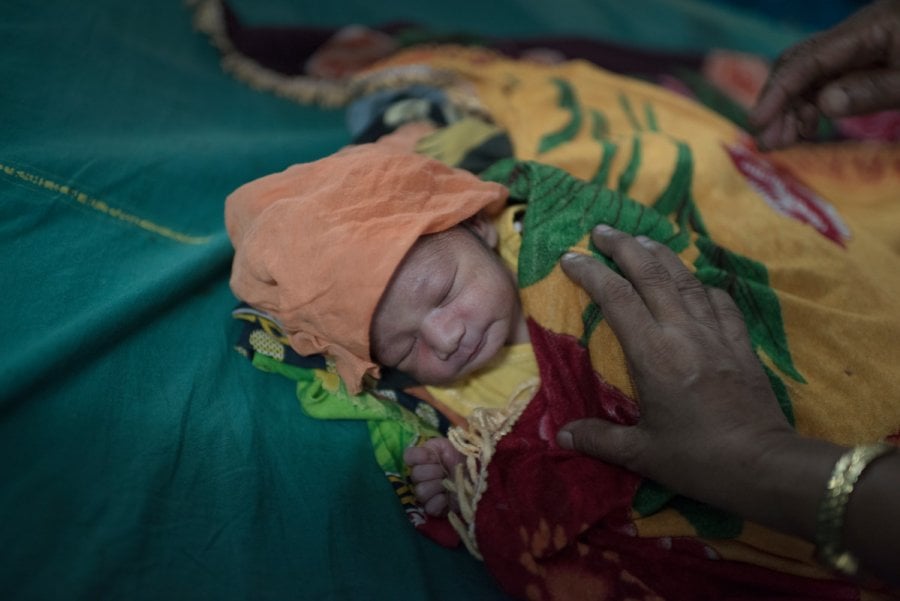A child dies every five seconds estimates new UN report – expert comment
18 September 2018 London School of Hygiene & Tropical Medicine London School of Hygiene & Tropical Medicine https://lshtm.ac.uk/themes/custom/lshtm/images/lshtm-logo-black.png
Suri Sadar Hospital. Credit: Pieter ten Hoopen
An estimated 6.3 million children aged under 15 died in 2017, mostly of preventable causes, according to figures in a new report released by UNICEF, the World Health Organization, United Nations and the World Bank Group.
The majority of these deaths, around 5.4 million in total, occur in the first five years of life and last year half of all deaths in under-fives took place in sub-Saharan Africa and another third in Southern Asia. Most children under five die due to preventable or treatable causes such as pneumonia, diarrhoea, neonatal sepsis and malaria.
Responding to the latest figures, Joy Lawn, Professor of Maternal, Reproductive and Child Health (MARCH) at the London School of Hygiene & Tropical Medicine, said:
“These new estimates for the first time include deaths after five years of age and up to 15 years, importantly counting young adolescents. The good news is, overall, these child and young adolescent deaths have been more than halved since 1990...but other statistics are more sobering.
“In total there were 6.3 million deaths before the age of 15 years. In all regions 80% of these deaths are under five years old. Now almost half of under five deaths (47%, 2.5million) are in the neonatal period – first month of life.
“Newborn survival will not change with 'more of the same' and the UN and partners need to act with urgency or SDG targets will not be met - 50 countries will have to more than double rates of progress to meet SDGs on newborn and child survival. Yet if countries achieved the under-five mortality rate of the best performing country in their region then 4.4 million fewer children would die every year.
“Improving national data and timeliness of these data are still key for tracking impact and especially sub national inequalities.”
If you enjoyed this article and would like to build a career in global health, we offer a range of MSc programmes covering health and data, infectious and tropical diseases, population health, and public health and policy.
Available on campus or online, including flexible study that works around your work and home life, be part of a global community at the UK's no.1 public health university.